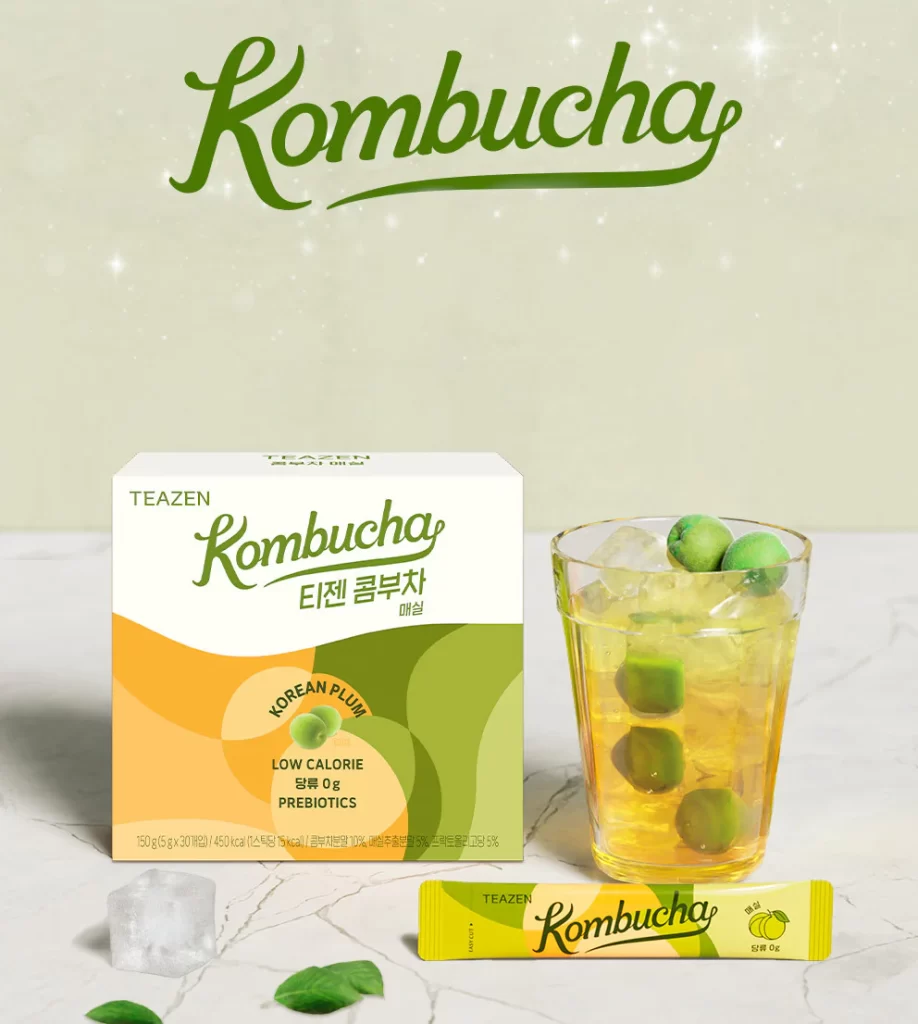Kombucha, a fermented tea known for its tangy flavor and health benefits, has gained significant popularity across the globe. In recent years, the Korean market has embraced this effervescent drink, leading to a surge in demand and innovative trends. Let’s delve into the key trends shaping the kombucha in Korean market.
Kombucha in Korean Market: Application Segmentation
The South Korean kombucha tea market is experiencing significant growth, driven by its diverse applications in various sectors. In the health and wellness sector, kombucha tea has gained prominence due to its probiotic benefits and natural detoxification properties. This application caters to the rising consumer awareness of gut health and overall well-being.
Health-conscious individuals are increasingly incorporating kombucha into their daily routines. They seek its potential to enhance digestion, boost immunity, and improve energy levels. The market for health-focused kombucha is expanding rapidly as consumers prioritize functional beverages that contribute to a balanced lifestyle.
In the food and beverage industry, kombucha tea is being utilized as a refreshing alternative to traditional soft drinks and flavored beverages. Its unique taste profile, combined with its health benefits, makes it an attractive option for consumers looking for healthier drink choices. Kombucha’s versatility allows it to be incorporated into a range of products, including ready-to-drink beverages, mixers, and culinary ingredients. The increasing demand for low-sugar, natural beverages has led to the growth of kombucha’s presence in cafes, restaurants, and retail outlets, reflecting its expanding role in the broader food and beverage market.
The beauty and personal care sector is also witnessing a surge in the application of kombucha tea, driven by its potential benefits for skin health. Kombucha’s antioxidant and anti-inflammatory properties make it a sought-after ingredient in skincare products. The market is seeing an increase in kombucha-infused skincare items, including facial masks, serums, and lotions, which are marketed for their potential to improve skin texture and combat signs of aging. As consumers become more interested in natural and organic beauty products, the inclusion of kombucha in personal care formulations is expected to continue growing, highlighting its expanding role beyond traditional beverage applications.
Variety of Flavors and Local Ingredients
In the vibrant Korean market, kombucha brands are taking flavor innovation to new heights by incorporating a diverse array of local ingredients. This trend not only appeals to the unique taste preferences of Korean consumers but also helps establish a strong cultural connection to the beverage.
Korean kombucha producers are increasingly utilizing traditional ingredients that resonate with local culinary practices. For instance:
- Honey: Known for its natural sweetness and health benefits, honey adds a rich flavor profile to kombucha. It complements the tanginess of the fermented tea while providing a touch of local sweetness that appeals to consumers.
- Ginseng: Revered in Korean culture for its health benefits, ginseng is often added to kombucha for its energizing properties. This not only enhances the drink’s functional appeal but also aligns it with the wellness trends prevalent in the market.
- Yuzu: This citrus fruit is celebrated for its unique aroma and flavor. Kombucha infused with yuzu offers a refreshing twist, balancing acidity with a fragrant zest that appeals to adventurous palates.
- Plum: The use of Korean plums, or “maehwa,” brings a sweet and slightly tart flavor to kombucha, creating a delightful taste experience that resonates with consumers looking for something familiar yet innovative.
Strategies to Develop Your Brand Kombucha in Korean Market
1. Embrace Local Ingredients
- Utilize Traditional Flavors: Incorporate popular Korean ingredients like ginseng, yuzu, and local fruits to create unique flavor profiles that resonate with consumers.
- Seasonal Variations: Launch limited-edition flavors based on seasonal ingredients or traditional festivals to attract interest and encourage repeat purchases.
2. Focus on Health Benefits
- Highlight Functional Properties: Emphasize the health benefits of kombucha, such as gut health, immunity support, and energy enhancement, which align with the growing wellness trend in Korea.
- Educate Consumers: Use marketing campaigns to educate consumers about the benefits of probiotics and fermented foods, positioning your kombucha as a healthy lifestyle choice.
3. Innovate with Packaging and Design
- Attractive Branding: Invest in eye-catching, eco-friendly packaging that stands out on shelves and appeals to environmentally conscious consumers.
- Clear Labeling: Include information about ingredients, health benefits, and brewing methods to build trust and transparency with customers.
4. Leverage Social Media and Influencer Marketing
- Engage with Influencers: Collaborate with health and wellness influencers to promote your kombucha on social media, leveraging their audiences to reach potential customers.
- Create Shareable Content: Develop engaging and visually appealing content for platforms like Instagram and TikTok, encouraging users to share their experiences with your product.
5. Expand Distribution Channels
- Retail Partnerships: Establish partnerships with health food stores, supermarkets, and cafes to increase accessibility and visibility.
- Online Sales: Create an e-commerce platform or partner with existing online retailers to cater to the growing trend of online shopping.
6. Host Tasting Events and Workshops
- Community Engagement: Organize tasting events or kombucha brewing workshops to connect with consumers directly, allowing them to experience your product firsthand.
- Educational Sessions: Host sessions on the benefits of fermented foods and how to incorporate them into a healthy lifestyle.
7. Sustainability Initiatives
- Eco-Friendly Practices: Implement sustainable practices in production and packaging to appeal to environmentally conscious consumers.
- Local Sourcing: Focus on sourcing ingredients locally to reduce your carbon footprint and support local farmers.
8. Build a Loyal Community
- Customer Feedback: Actively seek feedback from customers to improve your products and create a sense of involvement.
- Loyalty Programs: Develop loyalty programs or subscription services to encourage repeat purchases and foster a community around your brand.
9. Collaborate with Other Brands
- Cross-Promotions: Partner with complementary brands (like health foods or wellness products) for joint promotions or events, expanding your reach to their customer base.
10. Stay Informed on Market Trends
- Market Research: Regularly conduct market research to stay updated on consumer preferences, emerging trends, and potential competitors.
- Adaptability: Be willing to adapt your offerings based on consumer feedback and market dynamics to stay relevant.
The trends of kombucha in Korean market reflect a broader shift towards health and wellness, sustainability, and community engagement. As consumers continue seeking healthier alternatives, the demand for innovative and flavorful kombucha will likely grow. Brands that can adapt to these trends while maintaining quality and authenticity will be well-positioned for success in this dynamic market.






